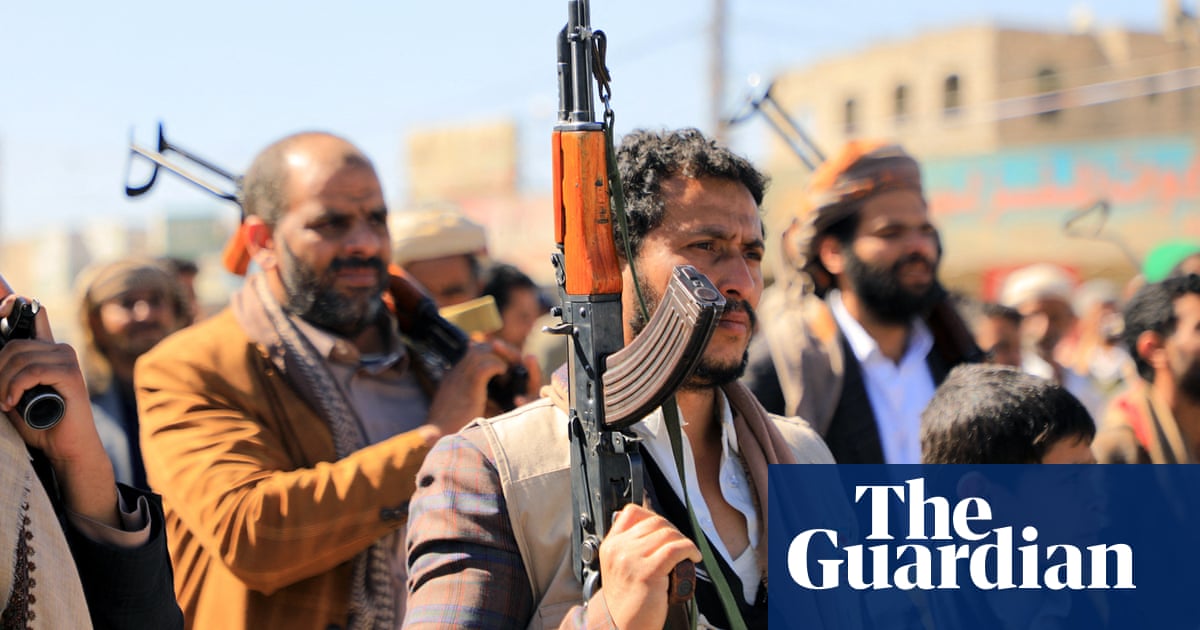Israel’s military has carried out a fresh round of airstrikes against Houthi rebels in Yemen’s Red Sea city of Hodeida, a day after the Iranian-backed rebels launched a missile that hit Israel’s main airport.
The rebels’ media office said at least six strikes hit the crucial Hodeida port Monday afternoon. Other strikes hit a cement factory in the Bajil district in Hodeida province, the rebels said. Israeli media reported that dozens of Israeli air force took part in the operation.
On Sunday, the Houthislaunched a missile from Yemen that struck an access road near Israel’s main airport, briefly halting flights and commuter traffic. Four people were lightly injured. It was the first time a missile had struck the grounds of Israel’s airport since the start of the war.
TheHouthisclaimed that the strikes were a joint Israeli-American operation. However, a US defence official said Washington did not participate in the strikes which were not part of Operation Rough Rider, the ongoing US military operation against the Houthis in Yemen to prevent them from targeting ships in the Red Sea. The official spoke on the condition of anonymity to discuss sensitive matters.
However, the US military separately launched multiple strikes on the Yemeni capital, Sana’a, on Monday, according to another US official said.
Nasruddin Amer, head of the Houthi media office, said the Israeli strikes would not deter the rebels, vowing that they will respond to the attack.
“The aggressive Zionist-American raids on civilian facilities will not affect our military operations against the Zionist enemy entity,” he said in a social media post.
He said the Houthis will escalate their attacks and won’t stop targeting shipping routes and Israel until it stopsthe war in Gaza.
The Houthis have targeted Israel throughout the war in solidarity with Palestinians, raising their profile at home and internationally as the last member of Iran’s self-described “Axis of Resistance” capable of launching regular attacks on Israel. The US military under President Donald Trump has launched an intensified campaign of daily airstrikes targeting the Houthis since 15 March.
Houthi rebels have fired at Israel since the war with Gaza began on 7 October, 2023. The missiles have mostly been intercepted, although some have penetrated Israel’s missile defence systems, causing damage. Israel has struck back against the rebels in Yemen.
The Israeli military said it targeted the Hodeida port on Monday because Houthi rebels were using it to receive weapons and military equipment from Iran.
The attack on Ben-Gurion International Airport on Sunday came hours before Israeli cabinet ministers voted to expand the war in Gaza, including toseize the Gaza Strip and to stay in the Palestinian territory for an unspecified amount of time. While air traffic resumed after an hour, the attack could lead to cancellations of many airlines, which had recently resumed flights to Israel.
